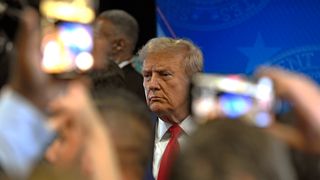One of the world's leading economists, Professor Jeffrey Sachs, was the guest of honour at a dinner hosted by US Studies Centre chief executive Professor Geoffrey Garrett.
"The next US President will face one of the most complex and challenging sets of circumstances in modern American history."
Professor Sachs noted that the US is facing enormous challenges, not only abroad in Iraq, Afghanistan and the war on terrorism but also at home regarding America's deepening economic slump. The necessity of responding immediately to these challenges will constrain the next president's capacity for global leadership in addressing pressing issues such as climate change, energy security, poverty reduction and human health.
US financial crisis
Sachs criticised President Bush's signature tax cuts as unsustainable given America's aging population and its frayed social safety net. He also said that the combination of overly expansionary monetary policy and lax financial regulation led to America's housing bubble, ballooning current account deficit and reliance on foreign borrowing - all of which are now constraining the country's ability to rebound from the sub-prime crisis.
"The Bush tax cuts need to be history, but the fiscal adjustment will be painful.....the weakening of the US dollar is the leading edge of a significant adjustment for the American economy", said Professor Sachs.
Climate change and energy
Sachs began by saying that achieving energy independence and tackling climate change are not, as is sometimes suggested in the US, mutually exclusive goals. "There can be no solution to the energy crisis without a climate change approach", he said. Sachs suggested that creating incentives to develop and deploy new technology was the most important and over-arching need, with emissions trading or carbon taxes only playing a supportive role in a broad technology policy, including direct public outlays for R&D and for demonstration projects.
Foreign Aid
Professor Sachs went on to say that it was a profound miscalculation for America to put US $700 billion into the military annually and only USD$ 21 billion or so into all development aid, of which only around one fourth was for Africa, and half or more was for Iraq, Afghanistan, and other countries in that region. "In this interconnected world, foreign aid is not an issue of charity but one of international security. The world cannot be safe with one billion impoverished people struggling for food and water," he said.







